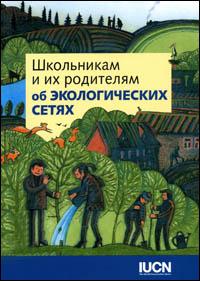

Related content
Инструмент для локального выявления прочих эффективных зональных природоохранных мер (ОЕСМ) : Первое издание
Other effective area-based conservation measures (OECMs) are sites outside protected areas that deliver effective and long-term in situ conservation of biodiversity. Biodiversity conservation may be the primary objective of the site, a secondary objective of a site that is managed for other purposes, or it may be an unintended consequence of the way the site is managed. OECMs may be governed and managed by governments, private entities or Indigenous peoples and local communities, or a combination of these. This tool guides an assessor through three steps to apply eight criteria which determine if a site qualifies as an OECM as set out under the Convention on Biological Diversity. For sites which do not currently meet all the criteria, the tool serves to highlight areas where further information or improvements in governance and management are required.
Глобальный план действий в отношении видов
The Global Species Action Plan (GSAP) is a critical initiative developed to support the implementation of the Kunming-Montreal Global Biodiversity Framework (GBF), to address the increasing biodiversity loss worldwide. The GSAP outlines strategic interventions and actions to conserve and sustainably manage species while ensuring equitable benefits. Emphasizing the critical role of species in ecosystem stability, human livelihoods, and cultural heritage, the GSAP seeks to prevent extinctions, reduce threats, and ensure equitable benefits from species use. Implementation involves diverse stakeholders, including governments, Indigenous peoples and Local communities, NGOs, academia, and businesses, fostering cooperation at global, regional, and local levels. The GSAP underscores the collective responsibility to safeguard Earth’s rich biological heritage for future generations.
Руководство и методическое пособие по оценке воздействия в контексте Всемирного наследия
As the World Heritage Convention celebrates its 50th anniversary in 2022, over 1100 sites around the world are recognized as World Heritage – places that are so valuable to humanity that there conservation has been deemed our collective responsibility. Yet many of these exceptional places face increasing pressure from diverse types of development projects within and around the sites. Assessing the impacts of such projects is essential to both prevent damage to World Heritage and identify sustainable options. This Guidance and toolkit explains the process for achieving these goals. Offering practical tips and tools including checklists and a glossary, it provides a framework for conducting impact assessments for cultural and natural heritage sites.
Руководство КВВ МСОП по конфликтам и сосуществованию человека и дикой природы : Первое издание
Поскольку конфликты между человеком и дикой природой становятся все более частыми, серьезными и широко распространенными во всем мире, их решение, как известно, является сложной задачей, и многие усилия, направленные на решение этих конфликтов, с трудом достигают прогресса. Данное Руководство является важной инструкцией для понимания и разрешения конфликтов между человеком и дикой природой. Цель Руководства – заложить основы и принципы передовой практики с ясными практическими рекомендациями по оптимальному решению конфликтов и обеспечению сосуществования с дикой природой. Они были разработаны для использования специалистами-практиками по охране природы, лидерами сообществ, лицами, принимающими решения, исследователями, правительственными чиновниками и другими лицами. Сосредоточенные на подходах и инструментах для анализа и принятия решений, они не ограничиваются каким-либо конкретным видом или регионом мира.
Gestión sostenible de la tierra en pastizales y praderas
Esta metodología para la evaluación participativa de pastizales y tierras de pastoreo (denominada PRAGA) se desarrolló a través del proyecto “Evaluación participativa de la degradación de la tierra y la gestión sostenible de la tierra en sistemas de pastizales y pastos”, financiado por el Fondo para el Medio Ambiente Mundial y ejecutado por FAO y la UICN. La metodología se probó en cinco países (Burkina Faso, Kenia, Kirguistán, Níger y Uruguay) para comprobar su eficacia y valor. Se hicieron las revisiones necesarias a la metodología, basadas en las lecciones aprendidas de su aplicación. Este informe documenta las buenas prácticas de gestión de los pastizales y tierras de pastoreo como una forma de informar las decisiones sobre la gestión de los mismos; y generar conciencia sobre la importancia de las prácticas de gestión identificadas localmente. Destaca el hecho de que estas prácticas de gestión de los pastizales no coinciden necesariamente con las prácticas definidas por los científicos y ecólogos. El público objetivo de este documento de trabajo incluye a los responsables de la toma de decisiones, a los gestores de las tierras, a otros usuarios de las mismas y a los científicos.
Economic aspects of community involvement in sustainable forest management in eastern and southern Africa
Produced by IUCN's Eastern Africa Programme, this publication aims to investigate the extent to which communities have been provided with economic incentives to become involved in sustainable forest management in Eastern and Southern Africa, and how far perverse incentives and disincentives encouraging forest degradation and loss have been overcome. This study concludes that there is an urgent need to provide economic incentives, and it highlights a number of policy recommendations.
Land, people and forests in eastern and southern Africa at the beginning of the 21st century : the impact of land relations on the role of communities in forest future
The way in which forest land is owned directly influences the status of the forest, its condition and the way in which it is managed. The greater the security of local forest tenure, the stronger the interest and will of the community towards its security. One of four papers commissioned by IUCN towards building a comprehensive profile on the subject of community involvement in forest management in eastern and southern Africa, this publication addresses the function of property relations and State-people relations in matters of governance and management. The study is comparative in nature, with a continuing examination of commonality and difference in the handling of property rights in respect of rural communities.

